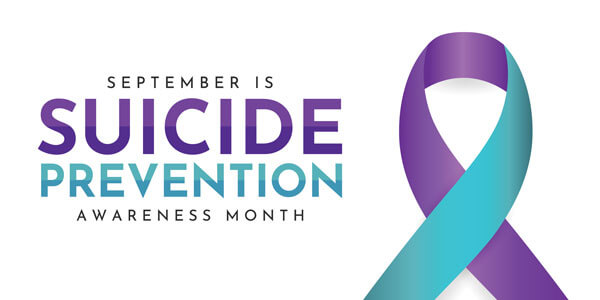National Suicide Prevention Month: How Occupational Health Programs Can Help Struggling Workers

September is National Suicide Prevention Month, a time when people across the country pause to remember those lost to suicide, those who struggle with suicidal thoughts and the loved ones impacted by suicide.
With mental illness issues on the rise in the workplace — a January 2024 NAMI-Ipsos poll reported that 15% of employees aged 18 to 29 rate their mental health as “somewhat poor” and 52% of workers reported they had felt burned out in the past year because of their job — the resources you offer at work and the culture you create can have a major impact on the mental health of struggling workers.
Mental Health Challenges in the Workplace
A large portion (69%) of employees reported their mental health has stayed the same or worsened in the past year, according to Calm’s 2024 Voice of the Workplace Report. The survey found that 61% of workers have said they’ve felt down, depressed or hopeless over the past month, and 68% reported having trouble falling asleep over the past month.
Because workers spend a lot of their time at work, how they are feeling mentally greatly impacts their work productivity, feelings of connection to your organization and their overall wellbeing.
An estimated one in five adults in the United States lives with a mental illness, the National Institute of Mental Health reports, and mental health issues can be exacerbated by periods of intense or prolonged stress. With the World Health Organization reporting that 83% of workers in the U.S. suffer from work-related stress, and 54% of workers saying that work stress impacts their home life, it’s more important than ever to pay attention to the mental and emotional health of your workforce.
The Role of Occupational Health Programs in Suicide Prevention
While you can’t eliminate all stress and mental illness triggers for your workers, your occupational health program can play a role in contributing to suicide prevention in a few key ways.
Employee Wellness Programs
Offering employee wellness programs goes beyond walking challenges and incentivizing drinking water. A robust employee wellness program has offerings and resources for all aspects of an employee’s health — physical, emotional, financial and mental.
Including access to mental health resources, whether that’s onsite or virtual mental health appointments, workshops on dealing with stress and a flexible time off policy that provides mental health days, can go a long way toward helping workers who struggle. The easier these mental health wellness benefits are for workers to access, the more they will utilize them and the better their mental health will be.
Mental Health First Aid Training
Being able to identify the signs of someone amid a mental health crisis, and knowing what resources to activate at that time, is crucial in getting workers who may be suicidal the help they require. That’s where mental health first aid training can be a huge benefit to your workplace.
With mental health first aid training, you’re able to help your team members identify the signs of someone in a mental health crisis. They’re given the tools to help them respond appropriately and get their coworker help, potentially saving a life.
At minimum, consider putting all supervisors through mental health first aid training, but allowing anyone who wants to build this skillset to attend training only increases the possibility that you’ll identify struggling team members earlier.
Onsite Clinics
Your onsite occupational healthcare providers can be a strong asset in helping workers who may be struggling with mental health issues. Their knowledge and connection to resources can be activated quickly whenever workers need it, getting them help faster.
Additionally, your clinic can become a place of respite for workers who are stressed out or just need a break. They can take a few moments to talk with clinic staff, catch their breath and then return to their duties feeling a little more refreshed.
Clinic staff also can lead mental wellness workshops, offering valuable information and insight on stress management, work-life balance and other topics.
Your Partner for Occupational Health Programs
Medcor offers comprehensive occupational health programs to support your workers in all the ups and downs of life. From full-time onsite clinics to 24/7 injury and illness triage, our advocates work hard to ensure your workers are safe, healthy and productive. Speak with an advocate today.